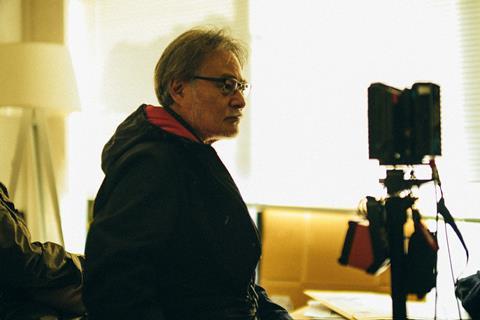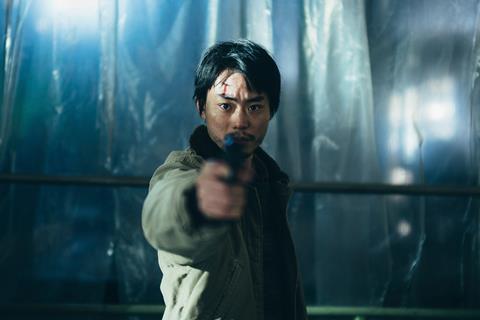
It might seem like the past year was extremely busy for Kiyoshi Kurosawa. The Japanese filmmaker saw his mid-length Chime play at the Berlinale in February, a French remake of his own 1998 thriller Serpent’s Path was released in June, and psychological thriller Cloud premiered at Venice before moving to Toronto. He has completed this run by collecting the Asian filmmaker of the year award at Busan International Film Festival (BIFF).
But the 69-year-old director, who shot all three films in 2023, is familiar with gruelling schedules having worked in V-Cinema, Japan’s direct-to-video genre films that had their heyday in the 1990s.
“I used to do up to five a year,” says Kurosawa, with a laugh. “But in that system, there was no going to festivals or doing interviews. You’d just finish the film and that was that.”
Those days are long gone and the acclaimed filmmaker has been a regular at the world’s leading film festivals for more than 25 years, showcasing award-winning features such as Cure, Tokyo Sonata and Wife Of A Spy, for which he won the Silver Lion for best director at Venice in 2020.
Youth vote
Kurosawa has also been a familiar face at BIFF, showing 11 films at the festival since 1999 including Doppelganger, which was selected as the opening film in 2003. He adds to this number with Serpent’s Path and Cloud, which both screen at this year’s festival.
“I think the Busan audience is the best,” says the director. “It’s a young audience, but they’re very literate about film history and have a deep understanding of film from various points of view.”

Cloud has been selected as Japan’s entry to the Oscars and stars Masaki Suda as a man who makes his living buying shady merchandise and reselling it online, incurring the wrath of people on both ends of his supply chain.
“I wanted to depict normal people in modern Japanese society with no links to violence who ultimately end up fighting to the death,” says Kurosawa. “When I was considering what work would fit such characters, I thought of a friend who is a reseller. They’re living normal lives, but with one wrong step they can end up in a bind. It’s the perfect representation of modern life as a whole.”
Securing Suda, who won best actor at the Japanese Academy Awards for his performance in Wilderness: Part One and provided the voice of the Grey Heron in Hayao Miyazaki’s The Boy And The Heron, was a big get, says Kurosawa. “He’s one of the top actors of his generation. He’s played weaklings with kind hearts to neighbourhood hoodlums and geniuses. I don’t think there are many other young actors with that much range.”
Cloud is not Kurosawa’s first foray into films with the internet at their centre. His 2001 techno-horror Pulse is about ghosts who move through the internet. But the web of those days is unrecognisable now, according to the director.
“Back then, the internet was wrapped in mystery,” he recalls. “It was digital but with an analogue feel. Twenty years later, the internet has become a daily tool, but with the power to amplify people’s complaints or feelings of discontent.”
Compared to Pulse, it is no longer the internet that is scary, says the director, “It’s the humans who are using it.”
Serpent’s Path, Kurosawa’s other 2024 feature, is a remake of his 1998 film of the same name. The thriller is a French production about a woman — played by Ko Shibasaki — who helps a man pull off a series of abductions.
“That [1998] film was written by Hiroshi Takahashi, a friend of mine known for penning Ring,” says Kurosawa. Explaining why, when producers offered him the chance to remake one of his films, he chose Serpent’s Path, the filmmaker says: “It was an interesting story, but the 1998 film feels to me like the ‘Hiroshi Takahashi’ version. I wanted to retain the story while making the ‘Kiyoshi Kurosawa’ version.”
Kurosawa has now made a number of films, including the new Serpent’s Path, outside of Japan. Would he consider making a film in South Korea?
“I’m quite interested,” says Kurosawa. “There are a lot of different ways to go about it — Japanese films shot in South Korea, South Korean films with a Japanese director, like Hirokazu Kore-eda’s Broker, or Japanese films shot in Japan but with South Korean investment. If I had the chance, I would love to give any one of those options a try.”






![The Brightest SunScreen[Courtesy HKIFF]](https://d1nslcd7m2225b.cloudfront.net/Pictures/274x183/3/5/0/1448350_thebrightestsunscreencourtesyhkiff_312678.jpg)


















No comments yet